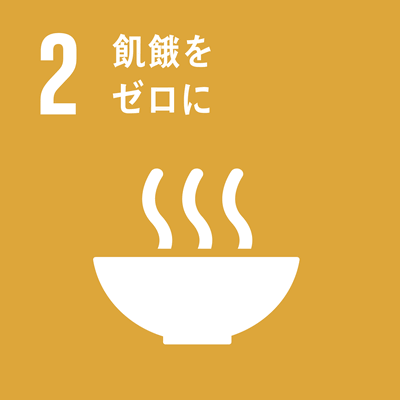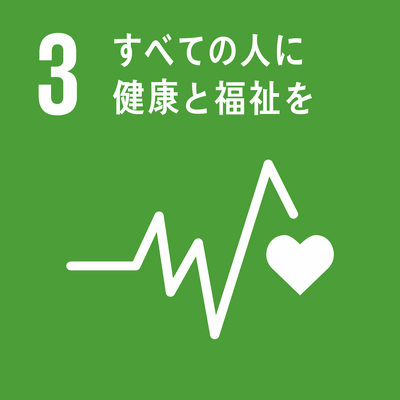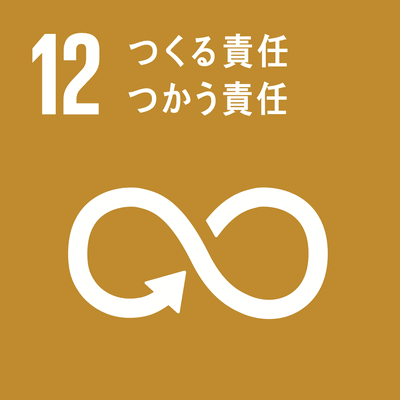シラバス表示
シラバスの詳細な内容を表示します。
→ 閉じる(シラバスの一覧にもどる)
科目の基本情報
| 開講年度 | 2021 年度 | |
|---|---|---|
| 開講区分 | 生物資源学部 | |
| 受講対象学生 |
資源循環学科・全教育コース 学部(学士課程) : 2年次 |
|
| 選択・必修 | 選択 |
|
| 授業科目名 | Introduction to Global Food Security | |
| いんとろだくしょん とぅ ぐろーばる ふーど せきぅりてぃ | ||
| Introduction to global food security | ||
| 単位数 | 2 単位 | |
| ナンバリングコード | BIOR-Reso-3341-006
|
|
| 開放科目 | 開放科目
他学科の学生の受講可 *2年生以上の学生の受講可 |
|
| 開講学期 |
後期 |
|
| 開講時間 |
月曜日 3, 4時限 |
|
| 授業形態 |
ハイブリッド授業 * 状況により変更される可能性があるので定期的に確認して下さい
「オンライン授業」・・・オンライン会議ツール等を利用して実施する同時双方向型の授業 |
|
| 開講場所 | ||
| 担当教員 | ジャガット クララタナ(特任教員)、タラガラ タランガ(特任教員) | |
| Jagath Kularatne and Thalagala Tharanga | ||
| SDGsの目標 |
|
|
| 連絡事項 | * 状況により変更される可能性があるので定期的に確認して下さい |
|
学修の目的と方法
| 授業の概要 | Global food security and sustainable agricultural development have become the most dominant issues in this century. Growing population, 9 billion in 2050 is causing unprecedented demand for food and increased pressure on land, and ensuring a secured food supply to the world is a critical challenge. Dissemination of modern technology, sharing research findings and productive discussions among countries across the world plays a vital role to enhance sustainable agriculture and food security. Therefore, this course is designed to deepen the knowledge on global food security and sustainable agricultural practices in English medium since most of the national and international organizations, academics, multinational companies in food and agribusinesses are widely used English as their language of instruction. Students will engage with basic scientific facts of food safety, food preservation, plant production, soil management, climate change, and sustainable development. The lectures are offered in English and lessons are focused on developing the skills of presentation, writing, and formal communications. At the end of this course, students will have attained a theoretical and practical understanding of scientific concepts and apply the fundamental knowledge for finding solutions to the problems on global food security and sustainable agriculture in the future, while using scientific English to communicate this knowledge. |
|---|---|
| 学修の目的 | To provide fundamental knowledge related to the food safety, plants, soil, climate change in English medium. To produce ideas an acceptable written form and extend the vocabulary in English related to the scientific fields particularly on food, plants, soil & climate change. To improve communication skills in English by performing discussions, formal presentations, make questions by critical thinking during presentation sessions. To develop flexible and versatile human resources in this fast globalizing world. |
| 学修の到達目標 | Upon completion of this course, students will be able to ・Improve the fundamental knowledge on food safety, plant production, soil management, global warming ・Follow lectures conducted in English ・Listen to the scientific English, extract required information and write that information in a formal report ・Conceptualize scientific information and express them in presentations (power point, poster etc.) answer to the questions and ask logical questions in English. ・Involve in national & international researches and projects ・Develop skills to challenge to the world without limiting to their own country. ・Find job opportunities both in national and international industries. |
| ディプロマ・ポリシー |
|
| 成績評価方法と基準 | Homework [40%], Presentation [30%], in-class activities [30%]. Students must attend more than 70% of the classes to obtain credits. |
| 授業の方法 | 講義 |
| 授業の特徴 |
プレゼンテーション/ディベートを取り入れた授業 教員と学生、学生相互のやり取りが、ほぼ英語で進められる授業 |
| 授業改善の工夫 | Students are expected to speak freely in English during class. Making mistakes is not a big deal. Don't laugh at other students' mistakes. Teachers speak slowly and clearly which enable students to understand accurately. Form and proceedings of the lecture contents are subjected to change slightly following the ability of students. |
| 教科書 | Handouts or soft copies that contain scientific facts and information are used when required. Information on textbooks and reference materials, if any, will be provided in the guidance lesson. |
| 参考書 | Notify the students during guidance as necessary |
| オフィスアワー | Students may freely visit teachers before or after the class, or by making an appointment via email (tharanga@bio.mie-u.ac.jp, jagath@bio.mie-u.ac.jp). |
| 受講要件 | Nothing in particular |
| 予め履修が望ましい科目 | Nothing in particular |
| 発展科目 | Nothing in particular |
| その他 |
環境教育に関連した科目 Students are expected to do preparation and revisions of the lessons to familiarize with the scientific English. The enthusiasm for learning is helpful for students to improve their skills in reading, listening, writing, speaking, and critical thinking. |
授業計画
| MoodleのコースURL |
|---|
| キーワード | plants, soil, food, climate change, agroforestry |
|---|---|
| Key Word(s) | plants, soil, food, climate change, agroforestry |
| 学修内容 | Reading lessons are conducted using the documents related to the agriculture, forestry, and biology. Students should read and comprehend the given passages (intensive reading), and explain the meaning of its content in English. Writing lessons are conducted by asking students to prepare short reports based on their lecture notes or information gathered from other sources such as the internet, textbooks, or research papers. In homework, students must answer the given questionnaires. Communication lessons conduct through the group presentations. Students are divided into small groups including 3~5 members. Each member should do a presentation around 10 min. Every student in the audience should ask creative and logical questions from the presenters. 第1回:Guidance: Purpose of the course, Lesson contents, examination, evaluation and grading system, etc. 第2回:Introduction about food safety: students will learn about importance, outbreaks, strategies to ensure food safety 第3回:Greenhouse agriculture: Students will learn about types, modern techniques, comparison with outdoor agriculture. 第4回:Food trend in Japan: students will learn about food self-sufficiency, food consumption, food industries in Japan 第5回:Food education (shokuiku) in Japan: Students will learn about the current situation, problems, improvements related to the food in Japan. 第6回:Video clip based lecture: Students will learn about the importance of doing agriculture in arid regions of the world as a solution to the food crisis. 第7回:Powerpoint presentation-1 in English. 第8回:Powerpoint presentation-2 in English. 第9回:Climate and weather, climate factors. 第10回:Climate change: evidence, greenhouse effect, greenhouse gasses. 第11回:Impacts of climate change on agriculture: pests, plant diseases, and global food security. 第12回:Energy cycle in an ecosystem: structure, the role of autotrophs and heterotrophs. 第13回:Agroforestry for food security: principals and benefits. 第14回:Powerpoint presentation-3 in English. 第15回:Powerpoint presentation-4 in English. 第16回:No end semester examination. |
| 事前・事後学修の内容 | Regular attendance, submission of homework on time, well prepared and active participation in class activities are strongly recommended. Those who want to upgrade the presentation skill further, we advise you to take the course on “presentation methods” which conducts from 16:20: 17:50 on Tuesday, Semester 2. |
| 事前学修の時間:120分/回 事後学修の時間:120分/回 |


